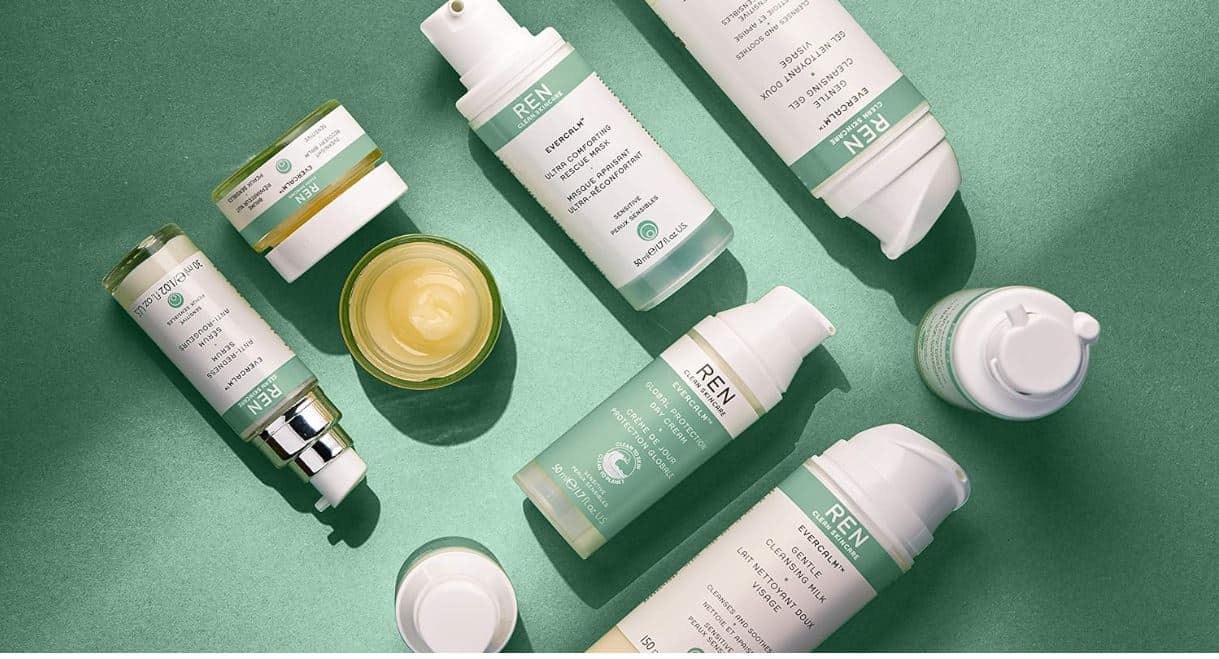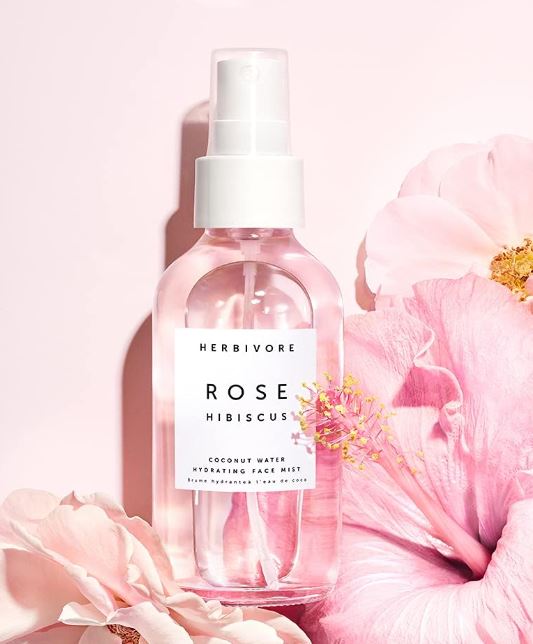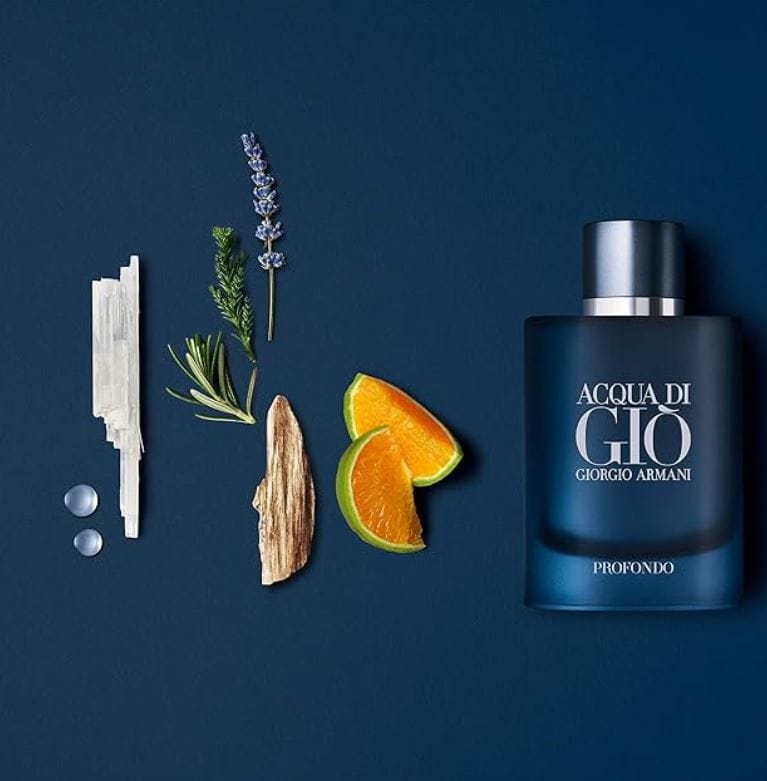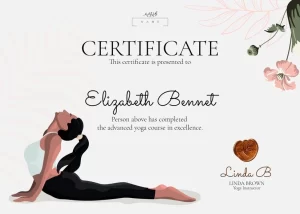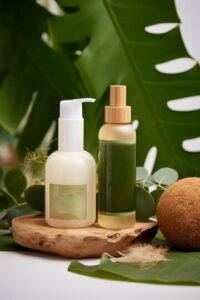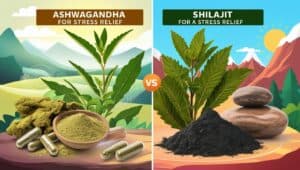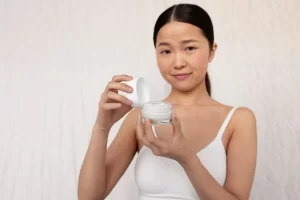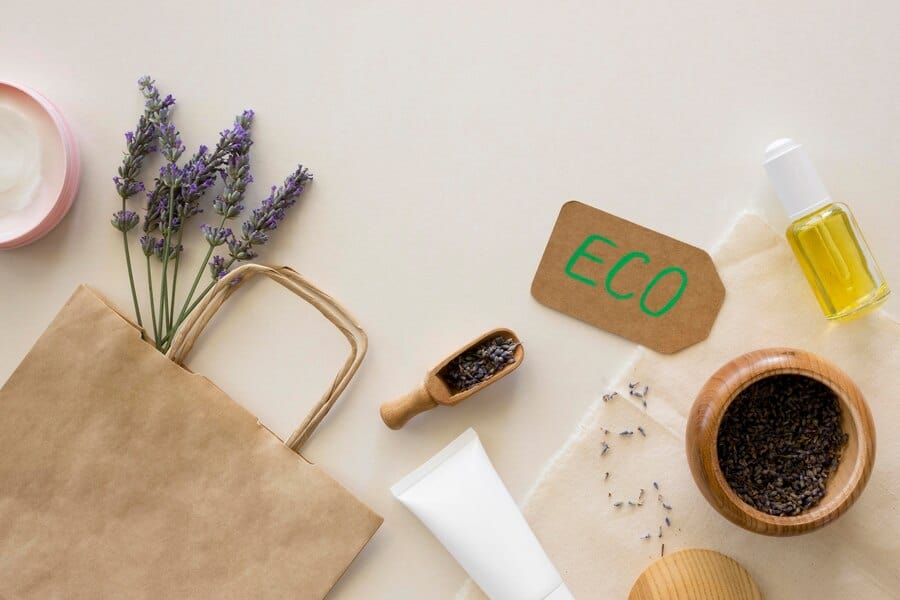
Top Ethical Beauty Brands for Conscious Consumers
Did you know that the global ethical beauty market is projected to reach a value of $25.11 billion by 2025?
That’s because more and more consumers are prioritizing sustainable skincare products, cruelty-free cosmetics, organic makeup, and eco-friendly beauty products.
Conscious consumers are driving the demand for ethical beauty brands that align with their values and contribute to a more eco-friendly beauty industry.
Key Takeaways:
- Consumers are increasingly seeking out ethical beauty brands.
- These brands prioritize sustainability and offer cruelty-free, organic, and eco-friendly products.
- The global ethical beauty market is projected to reach $25.11 billion by 2025.
- Conscious consumers have the power to support a more sustainable and ethical beauty industry.
- By choosing ethical beauty brands, consumers can promote a healthier planet and contribute to positive change.
REN
When it comes to sustainable beauty brands, REN leads the way with its commitment to zero waste practices and sustainable packaging.
This brand understands the importance of minimizing environmental impact and has taken significant steps to eliminate unnecessary packaging.
One of the notable changes REN has made is the decision to stop using sample sachets, reducing single-use plastic waste.
Additionally, REN has embraced innovative solutions, incorporating recycled ocean plastic into their packaging materials.
Zero Waste Initiatives
REN’s dedication to zero waste is evident in their packaging choices.
By incorporating recycled ocean plastic, this brand not only promotes sustainability but also raises awareness about the pressing issue of plastic pollution in our oceans.
At REN, we believe that sustainable packaging is the future. By utilizing recycled ocean plastic, we hope to inspire change and contribute to a cleaner, healthier planet.
Sustainable Packaging
REN understands that sustainable packaging plays a crucial role in reducing environmental impact.
By taking steps to eliminate unnecessary packaging and incorporating recycled materials, this brand sets a positive example for the beauty industry.
Our goal is to provide high-quality skincare products that not only nourish the skin but also minimize harm to the environment. Our sustainable packaging reflects our commitment to a greener future.
With their innovative and eco-conscious approach, REN exemplifies how beauty brands can make a positive difference.
By prioritizing zero waste practices and sustainable packaging, REN sets the standard for a more environmentally friendly beauty industry.
Aveda
When it comes to sustainable and vegan beauty products, Aveda is a frontrunner in the industry.
They have been dedicated to creating eco-friendly and socially responsible beauty solutions for over 40 years.
Aveda was not only one of the first beauty companies to embrace veganism, but it was also the pioneer in using post-consumer recycled materials for their packaging.
Aveda’s commitment to environmental initiatives sets them apart from other brands.
Since 1999, they have raised an impressive $60 million for various sustainability projects.
Their efforts focus on clean water initiatives, forest conservation, and supporting communities around the world.
Aveda’s use of post-consumer recycled materials reduces the demand for new resources and prevents waste from ending up in landfills.
By choosing Aveda, consumers can feel confident that they are supporting a brand dedicated to reducing their carbon footprint and promoting a circular economy.
Aveda’s commitment doesn’t stop at their packaging. Their products are vegan, meaning they are free from any animal-derived ingredients and have not been tested on animals.
This aligns with the growing demand for cruelty-free cosmetics and skincare.
Their ethical approach to beauty, combined with their commitment to sustainability, makes them a leader in the industry.
| Key Features of Aveda |
|---|
| Use of post-consumer recycled materials in packaging |
| Extensive range of vegan beauty products |
| Commitment to environmental initiatives, including clean water and forest conservation projects |
Lush
Lush has long been at the forefront of the sustainable beauty movement, prioritizing ethical and environmentally friendly practices.
One of their main focuses is on sustainable packaging, where they have made significant strides to reduce waste and promote recycling.
With a recycling rate of 90% for their packaging materials, including plastic and paper, Lush is leading the way in minimizing their environmental impact.
Sustainable Packaging Initiatives
Lush has implemented various initiatives to ensure that their packaging is sustainable and eco-friendly.
They strive to use recyclable materials wherever possible and have gone the extra mile to reduce single-use plastics.
In addition to promoting the reuse and recycling of their packaging, Lush has also introduced innovative solutions such as reusable container schemes.
This allows customers to bring back their empty containers to be refilled, reducing the need for new packaging.
Lush also supports the circular economy by using materials that can be easily recycled.
Their packaging is made from post-consumer recycled materials, which helps to reduce waste and gives new life to existing resources.
This commitment to sustainable packaging not only minimizes their carbon footprint but also encourages consumers to make more conscious choices when it comes to their beauty products.
Naked: A Plastic-Free Cosmetics Shop
In their quest for a plastic-free future, Lush has taken a bold step by opening a unique concept store called Naked in Manchester.
This innovative shop is dedicated to providing customers with plastic-free alternatives to traditional cosmetics.
With a wide range of naked products including shampoo bars, soaps, and solid moisturizers, Lush is proving that sustainable beauty doesn’t have to come in wasteful packaging.
At Naked, customers can experience a truly plastic-free shopping experience while still indulging in high-quality, environmentally conscious products.
By eliminating plastic packaging and focusing on naked alternatives, Lush is demonstrating their commitment to reducing plastic waste and promoting a more sustainable beauty industry.
Lush’s Commitment to Sustainability
Lush‘s dedication to sustainable packaging is just one aspect of their broader commitment to ethical and environmentally friendly practices.
Their brand ethos revolves around creating products that are not only good for the consumer but also good for the planet.
By choosing Lush, consumers can support a company that not only crafts high-quality and effective beauty products but also prioritizes sustainability and takes actionable steps to create a more eco-friendly future.
| Benefits of Lush’s Sustainable Packaging | Impact |
|---|---|
| Promotes recycling and waste reduction | Minimizes environmental impact |
| Encourages reusable container schemes | Reduces single-use plastic |
| Uses post-consumer recycled materials | Promotes the circular economy |
| Opens a plastic-free cosmetics shop called Naked | Showcases innovative plastic-free alternatives |
Herbivore
When it comes to sustainable beauty brands, Herbivore stands out for its commitment to eco-friendly practices.
Not only does Herbivore offer high-quality skincare products, but it also prioritizes packaging that minimizes environmental impact.
One of the key aspects of Herbivore’s sustainability efforts is its use of recyclable glass packaging.
Unlike plastic, glass packaging can be recycled indefinitely without losing quality or contributing to further pollution.
By opting for glass containers, Herbivore reduces the demand for single-use plastics.
Furthermore, Herbivore takes pride in creating products that are free from derivatives or byproducts of the fossil fuel industry.
By avoiding ingredients sourced from fossil fuels, Herbivore ensures that its products have a lower carbon footprint and contribute to a more sustainable future.
By choosing Herbivore skincare, consumers can enjoy effective and luxurious products while also making a positive impact on the environment.
Herbivore proves that beauty can go hand in hand with sustainability, offering a line of skincare that nourishes both our skin and the planet.
Giorgio Armani
Giorgio Armani, a renowned Italian fashion brand, is not only known for its stylish designs but also for its commitment to making a positive impact on the world.
Through its Acqua for Life initiative, Giorgio Armani has partnered with UNICEF to provide clean and safe water to children in need.
The Acqua for Life initiative focuses on supporting clean water projects in various communities around the world, ensuring that children have access to clean and safe water, a basic necessity for their well-being.
To date, Giorgio Armani has invested nearly £7 million in these projects, benefiting almost 200,000 people.
By prioritizing clean water projects, Giorgio Armani is making a significant difference and contributing to the global effort to provide access to clean water for those who need it the most.
This initiative not only improves the quality of life for children but also helps to prevent waterborne diseases and promotes sustainable development in vulnerable communities.
Giorgio Armani’s Impact
| Clean Water Projects | Investment | Beneficiaries |
|---|---|---|
| Safe water access | £7 million | Nearly 200,000 people |
Through their ongoing dedication to the Acqua for Life initiative, Giorgio Armani continues to support the vital work of UNICEF and make a meaningful difference in the lives of children who lack access to clean water.
By choosing
Giorgio Armani products, consumers not only embrace style and elegance but also contribute to this worthy cause and help create a better future for children in need.
Conclusion
Top Ethical Beauty Brands for Conscious Consumers
The beauty industry is undergoing a transformative shift, with sustainability and ethical practices taking center stage.
As conscious consumers become more aware of the impact their choices have on the environment, they seek out sustainable beauty brands that align with their values.
The top ethical beauty brands mentioned in this article are at the forefront of this movement, leading the way by creating environmentally friendly products.
These sustainable beauty brands prioritize practices such as using organic and natural ingredients, offering cruelty-free products, and using sustainable packaging materials.
By choosing these brands, conscious consumers not only enhance their own beauty routine but also contribute to a more sustainable and ethical beauty industry.
From REN’s commitment to zero waste and use of recycled ocean plastic, to Aveda’s vegan products and use of post-consumer recycled materials, these brands demonstrate their dedication to preserving the planet.
Lush’s sustainable packaging efforts and Herbivore’s use of recyclable glass packaging further highlight the industry’s progress towards a more sustainable future.
Even luxury brands like Giorgio Armani are part of this movement, with initiatives supporting clean water projects through their Acqua for Life program.
In conclusion, as consumers, we have the power to drive change in the beauty industry by making conscious choices.
By supporting sustainable beauty brands, we can collectively create a more ethical and environmentally friendly beauty industry.
Let’s continue to prioritize sustainability and embrace the innovation offered by these top ethical beauty brands to pave the way for a better future.
FAQ
What are ethical beauty brands?
Ethical beauty brands are companies that prioritize sustainability, offer cruelty-free products, and use organic and natural ingredients in their skincare and makeup.
What are some examples of sustainable skincare products?
Some examples of sustainable skincare products include those made by REN, Aveda, Lush, Herbivore, and Giorgio Armani.
Why is it important to choose cruelty-free cosmetics?
Choosing cruelty-free cosmetics ensures that no animals were harmed or tested on during the production process.
What does it mean for a beauty brand to be vegan?
When a beauty brand is vegan, it means that their products do not contain any animal-derived ingredients.
What are non-toxic beauty brands?
Non-toxic beauty brands are those that prioritize using safe and clean ingredients without potentially harmful chemicals.
How do ethical beauty brands contribute to a more eco-friendly beauty industry?
Ethical beauty brands contribute to a more eco-friendly beauty industry by using sustainable practices, reducing waste, and promoting environmentally conscious initiatives.
What sustainability practices has REN implemented?
REN is committed to becoming a zero-waste brand and has taken steps to eliminate unnecessary packaging. They have also stopped using sample sachets and have incorporated recycled ocean plastic into their packaging.
How has Aveda incorporated sustainability into their products?
Aveda produces vegan beauty products and was the first beauty company to use post-consumer recycled materials in their packaging. They have also raised $60 million for various environmental initiatives since 1999.
What efforts has Lush made towards sustainability?
Lush has made efforts to use recyclable packaging and has achieved a recycling rate of 90% for their packaging materials, including plastic and paper. They also have a plastic packaging-free cosmetics shop called Naked in Manchester.
How does Herbivore contribute to sustainability?
Herbivore uses recyclable glass packaging instead of plastic and ensures that their products are made without any derivatives or byproducts of the fossil fuel industry.
How does Giorgio Armani support clean water initiatives?
Giorgio Armani has developed the Acqua for Life initiative, which supports UNICEF’s efforts to provide clean and safe water to children around the world. They have invested nearly £7 million in clean water projects, benefiting almost 200,000 people.
What is the significance of choosing sustainable beauty brands?
By choosing sustainable beauty brands, consumers can support the environment, promote a more eco-friendly beauty industry, and align their purchasing choices with their values.

